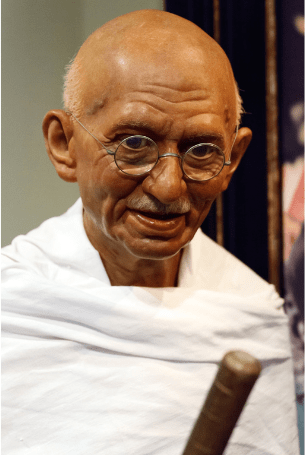Top 5 Essays on Mahatma Gandhi for Students / Teachers / Parents
Find a collection of Top 5 Essay on Mahatma Gandhi, one of the most influential figures in Indian history. Our aim is to provide students, teachers, and parents with high-quality resources to help them understand and appreciate the life and legacy of Gandhi.
Whether you’re a student looking to improve your writing skills, a teacher looking to inspire your students, or a parent looking to guide your child during exam time, our essays are a valuable resource. Each essay is written with students in mind and provides a comprehensive overview of Gandhi’s life and philosophy, making it a useful tool for learning about this important historical figure.
In these essays, you’ll find a wealth of information about Gandhi’s life and legacy, including his role in India’s independence movement, his philosophy of non-violent resistance, and his impact on the world. Whether you’re looking to write an essay for school or simply want to gain a deeper understanding of Gandhi’s life and work, our top 5 essays are a great place to start.
We hope that our essays will serve as a useful resource for students, teachers, and parents alike, helping to inspire and educate the next generation about the life and legacy of this great leader. So whether you’re looking to improve your writing skills, gain a deeper understanding of Gandhi, or simply learn more about this important historical figure, we invite you to explore our top 5 essays on Mahatma Gandhi.
Mahatma Gandhi Essay 1 –
Essay on Mahatma Gandhi

Mahatma Gandhi was a great leader from India. He was born on 2nd October, 1869 and grew up to become a lawyer. But what he is most famous for is being a leader for peace and freedom for his country.
Gandhi believed in non-violence and he used this idea to fight against the British rule in India. He led peaceful protests, marches, and strikes to show the British that he and the Indian people wanted their freedom.
Gandhi was a very determined man and he never gave up, even when things got tough. He was sent to jail many times but he never lost hope. His hard work and persistence paid off and India finally became a free country in 1947.
Gandhi was a kind and loving person. He always taught others to love and care for one another. He said, “The weak can never forgive. Forgiveness is the attribute of the strong.”
Ooops!…. Unable to read further?
Read this Essay completely by buying our Premium Plan below
Plus get FREE Access to below content
100+ Video and Audio based English
Speaking Course Conversations
12000+ Text & Audio based Frequently used Vocabulary & Dialogues with correct pronunciations
Full Grammar & 15000+ Solved Composition topics on
Essay Writing, Autobiography,
Report Writing, Debate Writing,
Story Writing, Speech Writing,
Letter Writing, Expansion of Ideas(Proverbs),
Expansion of Idioms, Riddles with Answers,
Poem Writing and many more topics
Plus Access to the Daily Added Content
INR ₹150.00



